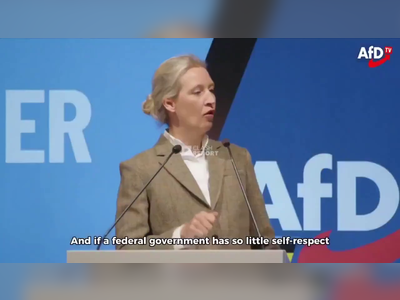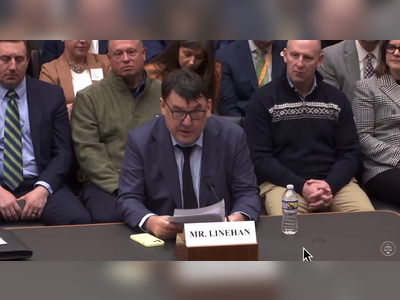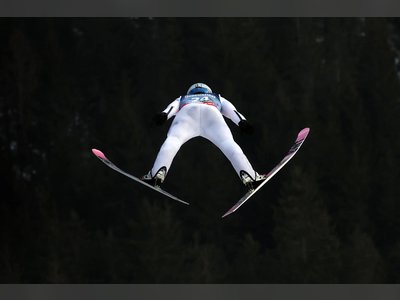
Wage Developments in the Euro Area Amid High Inflation
An analysis of wage growth dynamics and their relationship with inflation in the euro area since the pandemic.
Wages play a crucial role in understanding inflation trends and monetary policy implications.
The relationship between wages and inflation is characterized by a two-way influence: while wages are a significant input cost for firms affecting pricing decisions, they are also determined by inflationary pressures and expectations by workers.
The last decade has witnessed significant fluctuations in wage growth conditions, influenced by changing inflation rates and labor market dynamics.
From 2013 to 2017, the euro area experienced high labor market slack alongside low inflation and subdued productivity growth, which suppressed wage growth.
Despite a gradual increase in inflation beginning in 2018, coupled with greater labor market tightening, wage growth remained tepid until the pandemic.
During the pandemic, inflation remained low, and wage dynamics were also muted due to government interventions designed to mitigate economic fallout.
However, post-pandemic recovery, combined with geopolitical tensions stemming from Russia’s invasion of Ukraine, led to historic inflation levels in the euro area and consequent rapid wage growth.
By 2023, while headline inflation began to decline, wage growth subsequently showed signs of moderation.
The assessment of wage growth drivers has become complex in the current macroeconomic climate, necessitating a re-evaluation of traditional analytical frameworks.
This article references the Phillips curve to explore wage dynamics during the post-pandemic era (2022-2024) by incorporating granular data on wage agreements and analyzing inflation correlations through established economic models.
Key indicators of wage growth in the euro area, such as annual compensation per employee (CPE), showed variances during the pandemic recovery.
Initially, CPE growth increased significantly in alignment with rising inflation, reaching above 4% by 2022, while hourly compensation growth lagged slightly due to hours worked recovery following the pandemic.
Both indicators converged above 5% by 2023. Conversely, negotiated wage growth, which reflects outcomes from collective bargaining, rose more gradually from around 1% in 2021 to over 4% in 2023, indicative of the slower operational adjustment processes post-pandemic.
Recent trends indicate that although wage growth has moderated, different indicators reflect this easing at varying rates.
Negotiated wages, often encoded within multi-year contracts, have persisted at elevated levels and displayed higher volatility than other indicators due to the nature of recent pay structures.
The broader economic implications for wage growth stem from the substantial decline in real wages experienced across sectoral divides as inflation peaked.
On average, real wage levels fell nearly 5% during the inflation surge, prompting workers to demand wage recoveries based on historical wage expectations and current inflation conditions.
This dynamic influences ongoing collective negotiations within various sectors.
Employing the augmented wage Phillips curve model, researchers have identified that labor market conditions, price inflation, and productivity growth serve as pivotal drivers of wage growth.
Evidence suggests that the speed of wage adjustments has been exacerbated by backward-looking inflation expectations, particularly during heightened inflation periods.
The euro area’s labor market has consistently indicated tight conditions, with unemployment rates reaching unprecedented lows since the euro’s inception in 1999.
Labor demand indicators, including vacancy rates and sector-specific production constraints, further corroborate this labor market tightness.
Despite recent easing signals in labor demand, the stubbornness of negotiated wage growth highlights the complexity of wage dynamics during periods marked by volatile economic activity.
In summary, the landscape of wage developments amid fluctuating inflation rates within the euro area presents a multifaceted analytical challenge, showcasing the intricate interdependencies between wages, inflation, and labor market conditions across the post-pandemic recovery period.
The relationship between wages and inflation is characterized by a two-way influence: while wages are a significant input cost for firms affecting pricing decisions, they are also determined by inflationary pressures and expectations by workers.
The last decade has witnessed significant fluctuations in wage growth conditions, influenced by changing inflation rates and labor market dynamics.
From 2013 to 2017, the euro area experienced high labor market slack alongside low inflation and subdued productivity growth, which suppressed wage growth.
Despite a gradual increase in inflation beginning in 2018, coupled with greater labor market tightening, wage growth remained tepid until the pandemic.
During the pandemic, inflation remained low, and wage dynamics were also muted due to government interventions designed to mitigate economic fallout.
However, post-pandemic recovery, combined with geopolitical tensions stemming from Russia’s invasion of Ukraine, led to historic inflation levels in the euro area and consequent rapid wage growth.
By 2023, while headline inflation began to decline, wage growth subsequently showed signs of moderation.
The assessment of wage growth drivers has become complex in the current macroeconomic climate, necessitating a re-evaluation of traditional analytical frameworks.
This article references the Phillips curve to explore wage dynamics during the post-pandemic era (2022-2024) by incorporating granular data on wage agreements and analyzing inflation correlations through established economic models.
Key indicators of wage growth in the euro area, such as annual compensation per employee (CPE), showed variances during the pandemic recovery.
Initially, CPE growth increased significantly in alignment with rising inflation, reaching above 4% by 2022, while hourly compensation growth lagged slightly due to hours worked recovery following the pandemic.
Both indicators converged above 5% by 2023. Conversely, negotiated wage growth, which reflects outcomes from collective bargaining, rose more gradually from around 1% in 2021 to over 4% in 2023, indicative of the slower operational adjustment processes post-pandemic.
Recent trends indicate that although wage growth has moderated, different indicators reflect this easing at varying rates.
Negotiated wages, often encoded within multi-year contracts, have persisted at elevated levels and displayed higher volatility than other indicators due to the nature of recent pay structures.
The broader economic implications for wage growth stem from the substantial decline in real wages experienced across sectoral divides as inflation peaked.
On average, real wage levels fell nearly 5% during the inflation surge, prompting workers to demand wage recoveries based on historical wage expectations and current inflation conditions.
This dynamic influences ongoing collective negotiations within various sectors.
Employing the augmented wage Phillips curve model, researchers have identified that labor market conditions, price inflation, and productivity growth serve as pivotal drivers of wage growth.
Evidence suggests that the speed of wage adjustments has been exacerbated by backward-looking inflation expectations, particularly during heightened inflation periods.
The euro area’s labor market has consistently indicated tight conditions, with unemployment rates reaching unprecedented lows since the euro’s inception in 1999.
Labor demand indicators, including vacancy rates and sector-specific production constraints, further corroborate this labor market tightness.
Despite recent easing signals in labor demand, the stubbornness of negotiated wage growth highlights the complexity of wage dynamics during periods marked by volatile economic activity.
In summary, the landscape of wage developments amid fluctuating inflation rates within the euro area presents a multifaceted analytical challenge, showcasing the intricate interdependencies between wages, inflation, and labor market conditions across the post-pandemic recovery period.
AI Disclaimer: An advanced artificial intelligence (AI) system generated the content of this page on its own. This innovative technology conducts extensive research from a variety of reliable sources, performs rigorous fact-checking and verification, cleans up and balances biased or manipulated content, and presents a minimal factual summary that is just enough yet essential for you to function as an informed and educated citizen. Please keep in mind, however, that this system is an evolving technology, and as a result, the article may contain accidental inaccuracies or errors. We urge you to help us improve our site by reporting any inaccuracies you find using the "Contact Us" link at the bottom of this page. Your helpful feedback helps us improve our system and deliver more precise content. When you find an article of interest here, please look for the full and extensive coverage of this topic in traditional news sources, as they are written by professional journalists that we try to support, not replace. We appreciate your understanding and assistance.











